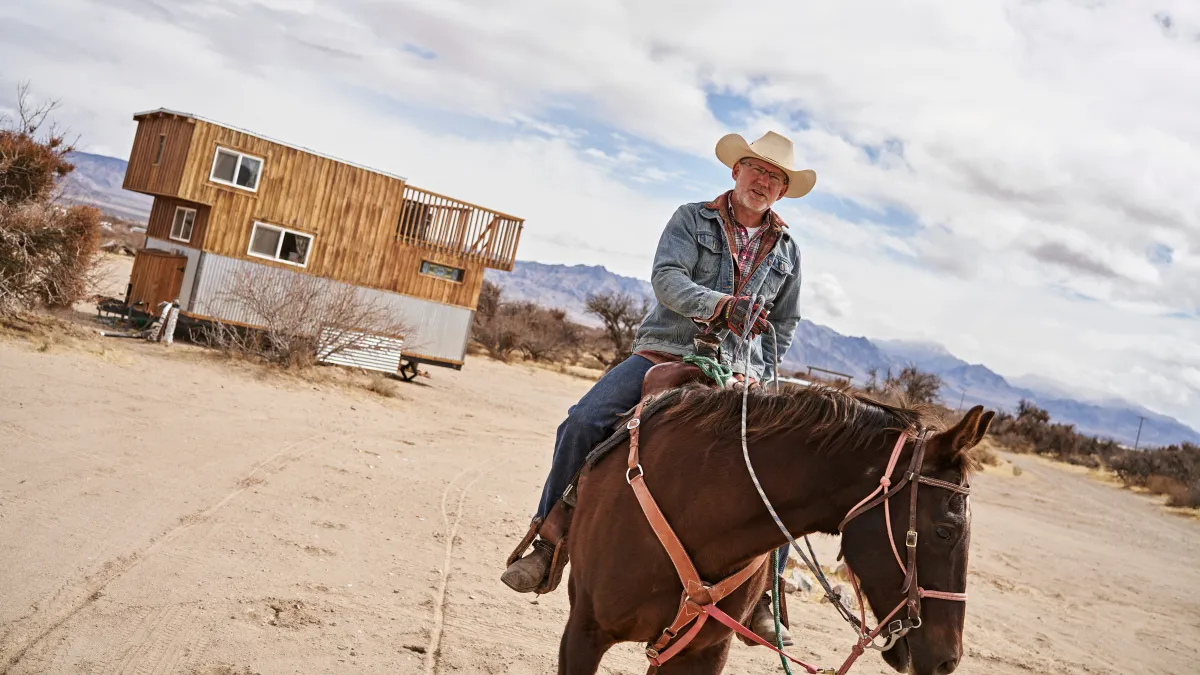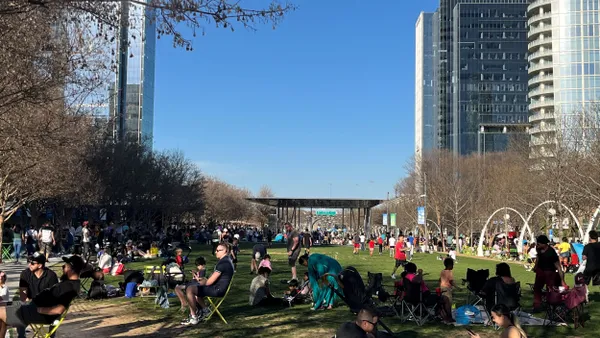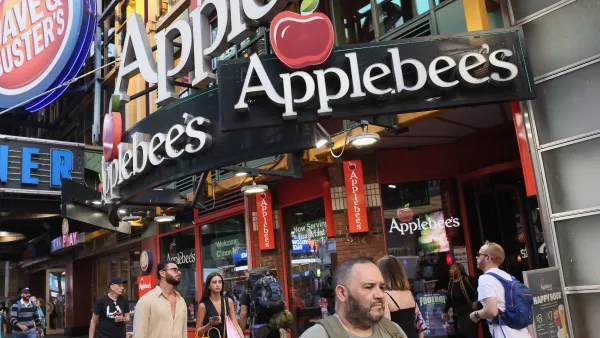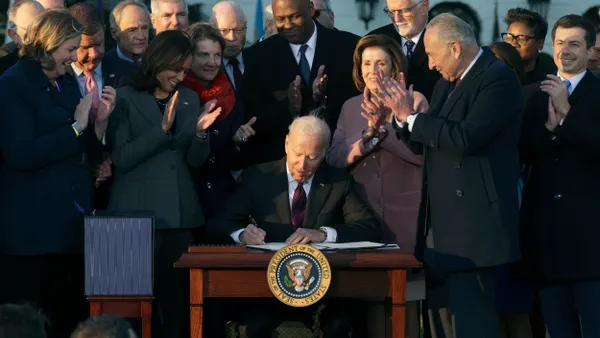Dive Brief:
- Airbnb unveiled major upgrades to its short-term rental platform on Monday, as CEO Brian Chesky predicted the "biggest travel rebound in a century" as cities across the country lift public health restrictions.
- The list of more than 100 updates includes new tools for City Portal, which will help governments promote economic recovery in certain areas through travel and tourism, according to Airbnb's senior vice president for global policy and communications, Chris Lehane.
- The updates come as Airbnb says its bookings have grown in low-density areas, suburbs and small towns as people travel more while also working remotely, a trend that accelerated during the pandemic. The company also said users are staying at destinations longer, with 24% of its bookings in the first quarter of 2021 being for 28 days or more. "People aren’t just traveling on Airbnb," Chesky said on a live stream unveiling the changes. "They're now living on Airbnb."
Dive Insight:
Airbnb's City Portal tool, which it started to give governments and tourism organizations more insight into listings and community activity, and to help ensure compliance with any COVID-19 travel restrictions, will evolve as cities start to return slowly to normalcy, Lehane said.
As cities look to attract more remote workers, Airbnb is also looking to help local leaders take advantage of that trend. The company recently expanded its "Try Before You Buy" program, partnering with remote worker relocation initiatives across the country to provide discounts to individuals seeking to visit a city before they move.
Lehane said Airbnb will soon announce a partnership with a yet-to-be-confirmed state government through City Portal to educate potential hosts in traditionally underserved areas, which will also help promote an equitable recovery.
"Ultimately, what we're giving these cities, in the same way that your phone is a utility that you have in your hand, where you can do a bunch of different things on it, I think the portal is effectively going to serve that role for these different governments," Lehane said.
City Portal will continue to expand in use, Lehane predicted, with Airbnb recently committing to bring it to 50 cities in the European Union, in addition to its continued use in the United States and elsewhere. He said it shows how governments can harness technology and data to make better decisions.
"There's an interesting model there, as we think more broadly about how to effectively make sure that tech is working as positively as possible and being effectively regulated in democratic societies, because what it does at the end of day, it's empowering," Lehane said. "It's the platform, giving governments what they need to be able to actually manage a regulatory legal legislative framework."
When Airbnb filed for its initial public offering late last year, the company warned in paperwork it submitted to the Securities and Exchange Commission that it was unsure of the impacts of COVID-19 on its business, and it said the pandemic may require cuts to operating costs, especially if cities were forced to delay reopening.
But as the year has worn on, and the pandemic has begun to subside with the rollout of vaccines, Airbnb officials have expressed confidence that they will rebound, even in the face of continued financial headwinds. In its Q1 2021 earnings call earlier this month, the company said its revenue grew 5% in the first quarter, to $887 million, and its gross booking value rose over 50%, although its adjusted EBITDA loss for the quarter was $59 million.
Lehane said the ability to continue to work remotely, coupled with people’s desire to reconnect with loved ones, will result in permanent shifts to how customers use Airbnb and travel. And while the nature of business travel may change at the same time, he said the idea of travel as a "lifestyle" and not just as a vacation could stick for many.
"Maybe you take four or five weeks over the summer, and you're picking and choosing days you're taking off, but you're still able to work there," Lehane said. "So your family is able to really get a different kind of experience than one week in August. You can even spend a summer traveling, driving across the U.S., and you can still work. I do think that blending of travel, work and living is here to stay."











